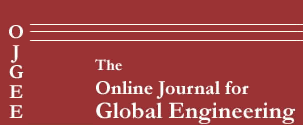Abstract
On November 5-6, 2008, a group of 23 distinguished engineering educators convened in Newport, Rhode Island to discuss the globalization of U. S. engineering education. Their goal was to consider the changes and challenges brought about by the recent wave of globalization and to ask, as so many colleagues are doing around the country, what proactive steps need to be taken by engineering educators to ensure that their graduates are prepared to be productive citizens and professionals in today’s and tomorrow’s complex world. Encouraged and supported by the National Science Foundation (NSF) and its Division of Engineering Education and Centers, the group began its meeting with observations and advice from three executives in the contemporary global business arena. It was then tasked with a review of the rationale for incorporating global perspectives and skills into the engineering curriculum, as well as the urgency for doing so. The reasons for the generally slow response among engineering educators to this matter nationally, when compared to other nations in the industrialized world, were also explored. After consideration of the potential impact of the current economic downturn on this issue, the summit reviewed information about existing successful models and best practices for a more global engineering education at colleges and universities across the country in an attempt to answer the following questions: To what extent are American engineering programs sending their students abroad? What have we learned and what are the successful models and strategies for globalizing U.S. engineering education? What can be shared with the profession at large and by what means? The group concluded its work with a set of recommendations for funding agencies such as NSF, as well as a strong and succinct call to the profession at large for action, in the form of a document included in this report, entitled The Newport Declaration. The following is a summative and detailed report of this meeting, based in part on a set of papers and documents which had been prepared in advance and were then revised to include the benefit of the group’s discussions.
Recommended Citation
Grandin, John M. and Hirleman, E. Dan
(2009)
"Educating Engineers as Global Citizens: A Call for Action / A Report of the National Summit Meeting on the Globalization of Engineering Education,"
Online Journal for Global Engineering Education:
Vol. 4:
Iss.
1, Article 1.
Available at:
